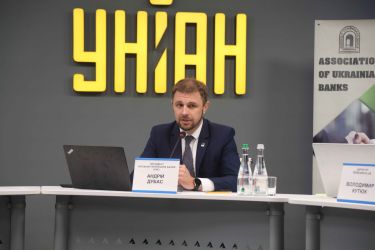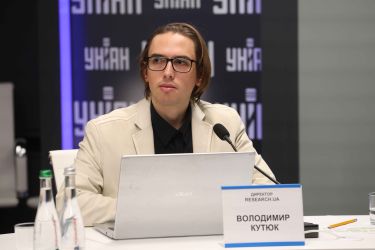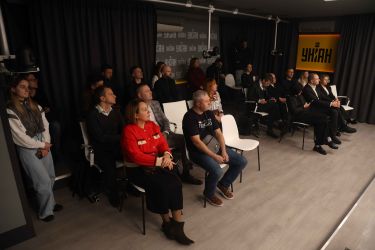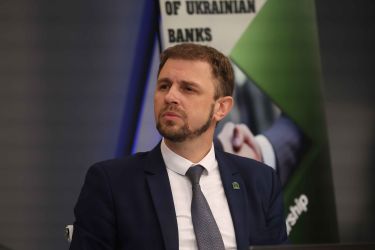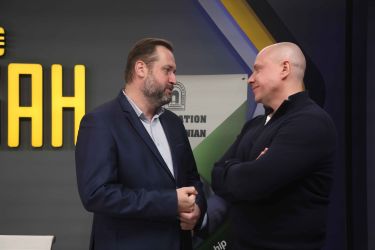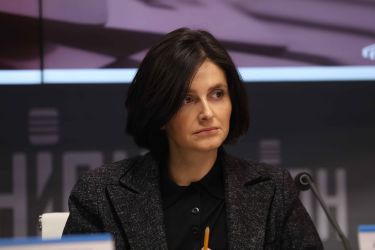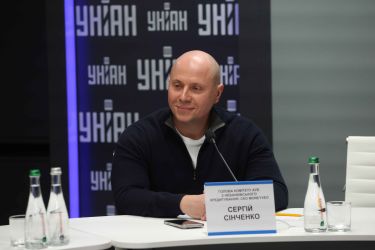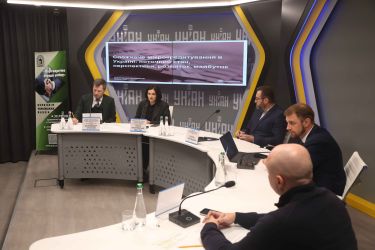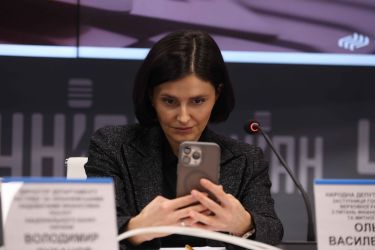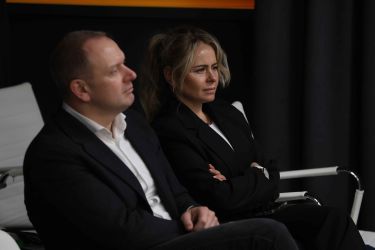AUB News
The Association of Ukrainian Banks presented a study and held a public discussion on the state of the consumer microcredit market
Microloan consumers will gain access to verification through Diya, the National Bank is recording a decrease in the cost of microloans, and unscrupulous companies will have their “oxygen cut off.” The results of a study by the Association of Ukrainian Banks showed that most Ukrainians are satisfied with the services provided by MFOs. These and other topics were discussed during a media event at UNIAN, organized by the Association of Ukrainian Banks on October 28 in Kyiv.
Presentation of the study: most Ukrainians are satisfied with the services of microcredit organizations
The Association of Ukrainian Banks, together with Research.ua and the Institute of Sociology of the National Academy of Sciences of Ukraine, presented the results of a sociological study entitled “Consumer Microcredit in Ukraine: Current Status, Prospects, Development, Future.”
Andriy Dubas, President of the Association of Ukrainian Banks, noted:
“This study was conducted in July 2025. The main objectives were to assess the actual attitude of citizens towards non-bank consumer lending, its accessibility, transparency, and the responsibility of both parties: the borrower and the lender.”
Director of Research.ua Volodymyr Kutyuk reported that 73% of respondents are completely or somewhat satisfied with microcredit services, and 69% are willing to recommend the microfinance organizations where they most often take out loans.
“As the results of the study show, the vast majority of users of microfinance organizations continue to take out microloans for daily needs in order to make ends meet until payday,” said Volodymyr Kutyuk.
In second place in popularity are loans to pay for medical treatment or medication, and in third place are utility bills. Microloans for clothing, footwear, and home repairs also remain popular.
The study showed that most Ukrainians have a neutral or positive attitude toward penalties for non-compliance with contract terms:
"Only 14–18% are categorically against them, while 27–28% consider them fair, and 44% support the application of sanctions only for serious violations. This indicates that customers are willing to accept penalties under reasonable conditions. About 40% of respondents believe that both the borrower and the financial institution should be held responsible for loan defaults," added Kutyuk.
Serhiy Dembitsky, deputy director of the Institute of Sociology of the National Academy of Sciences of Ukraine, said that sociological monitoring by the Institute of Sociology showed a complex picture of the well-being of Ukrainians in 2025.
It turned out that about one-third of Ukrainians save, borrow, or seek financial assistance to purchase food, about 40% to pay utility bills and budget electrical appliances, and three-quarters of our fellow citizens to buy new large household appliances.
“Therefore, it is obvious that there is a need in our country for a variety of financial instruments that make full consumption possible,” said Serhiy Dembitsky.
The researcher also focused on how users of consumer microloans feel about themselves compared to other people. According to the analysis, MFI users generally rate themselves as more successful than the rest of the respondents, and this trend is consistent across almost all aspects that were evaluated.
“The survey results show that MFI users generally rate themselves as more successful than the rest of the respondents. This trend is characteristic of almost all aspects that were assessed. Particularly indicative are such individual values as knowledge, status, power, leisure, and material well-being,” said Dembitsky.
He noted that questions concerning the relationship between the use of microloans and the feeling of personal success require separate in-depth research.
"But even if we look at the situation hypothetically and take into account the five individual values listed above, we can try to give a preliminary explanation. Thus, the value of knowledge is more likely to be a factor that increases the likelihood of resorting to consumer microcredit due to better awareness. The rest of the values, namely status, power, leisure, and well-being, require financial resources, meaning they can be enhanced through microcredit," concluded Serhiy Dembitsky.
Discussion panel: rate regulation, verification through “Diyu,” and combating the “gray” zone
During the panel discussion “Consumer microcredit in Ukraine: current status, prospects, development, future,” Volodymyr Sukhanov, director of the National Bank of Ukraine's non-banking institutions supervision department, said
"If you look at the composition of market participants, the cost of credit has fallen significantly since the daily rate was capped. I don't know of any financial institution that has become unprofitable. In terms of lending volume, companies have almost caught up with pre-war levels."
Volodymyr Sukhanov cited the example of Lithuania, where the maximum annual interest rate for microloans must not exceed 70%, but noted that similar restrictions in Ukraine would lead to a market freeze:
"If we impose the same restrictions now, no one will be able to operate. Why? We need to consider how financial companies operate. Financial companies have a very short capital turnover period. We also need to take into account that one in seven people do not repay their loans," Sukhanov explained.
The NBU representative also suggested that with the reduction in the number of problem loans, market rates may fall.
People's Deputy Olga Vasilevska-Smaglyuk noted that no microfinance organization went bankrupt after the introduction of the 1% daily rate.
"It was my obligation when we slightly worsened the conditions for you by introducing the 1% rate. And I think the time for this bill will come, because these were COVID restrictions introduced during COVID on fines and penalties," the MP said, adding that there is a bill in parliament to partially lift the moratorium on the collection of penalties for overdue loans.
Vasilevska-Smaglyuk also predicts the resumption of verification through the Diya app by the end of the year. The initiative was supported by AUB President Andriy Dubas:
"We believe that the rules on the market, if it is consumer lending, for example, in banks and non-bank institutions, should be the same. If these are verification or identification tools, if they are available to users of insurance or banking services, they should also be available to other organizations, but only if they are licensed.
Serhiy Sinchenko, Chairman of the AUB Committee on Non-Bank Lending and CEO of Monyveo, drew attention to the problem of unlicensed market players operating in the “gray zone”:
"They destroy trust. We have already talked about research today, saying that trust is the main component of any business, but these companies that lend in crypto are not licensed, they are not regulated, they are not restricted in advertising, they are not restricted in interest rates, and worst of all, they are not restricted in debt collection, and they can use the most unethical methods of debt collection. They cast a shadow over the entire market," Sinchenko explained.
During the discussion, the panelists also touched on issues of financial literacy, financial inclusion, and responsible lending. As market representatives emphasized, non-bank financial companies play an important social role, as they provide Ukrainians with quick and convenient access to credit resources, especially for those categories of citizens who are unable to obtain a bank loan.
The participants paid special attention to the issue of improving the financial literacy of Ukrainians. According to the survey, more than half of MFI users (55%) expressed a desire to improve their financial knowledge — significantly more than among the general population (36%). The most popular learning formats are online courses, videos on social media, and podcasts, which indicates citizens' willingness to embrace modern educational formats.
In his speech, Andriy Dubas, President of the Association of Ukrainian Banks, said that on March 26, 2025, in Kyiv, as part of the “All-Ukrainian Forum on Financial Technologies: Trends and Prospects,” financial companies operating in the non-bank consumer lending market signed a Memorandum on Responsible Lending.
According to Dubas, this document is a kind of “white list” of companies that comply with the norms and principles of transparent operation established by law. The memorandum defines common standards of conduct for financial institutions — from transparency of lending conditions to improving financial literacy and inclusion.
“We urge market participants to join the signatories of the Memorandum in order to expand the circle of companies that adhere to the Concept of Responsible Lending initiated by the National Bank of Ukraine in their activities,” Andriy Dubas emphasized.
According to the Memorandum, its signatories undertake to increase the transparency of credit services, improve the assessment of borrowers' creditworthiness, support the financial literacy of citizens, and ensure fair treatment of customers. The document remains open for new participants who share the principles of responsible lending to join.
The event at UNIAN confirmed that following regulatory changes, the microcredit market is gradually recovering, and consumer confidence and transparency of processes are becoming central to its development. The return of verification through “Diyu,” the fight against unlicensed companies, and uniform rules for banks and MFOs are the main areas on which both the state and the financial community are currently focusing.
Subscribe to our newsletter

Contacts
15, Yevhena Sverstyuka str.,
Kyiv, 02002 Ukraine
Email :
office@aub.org.ua
Phones:
+380 (44) 516-8775


